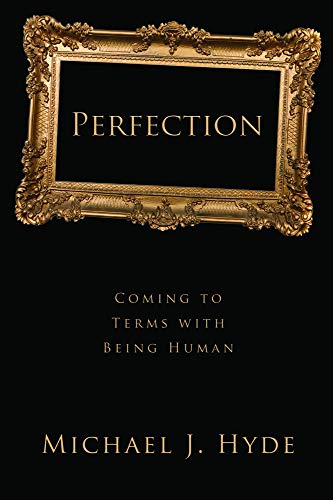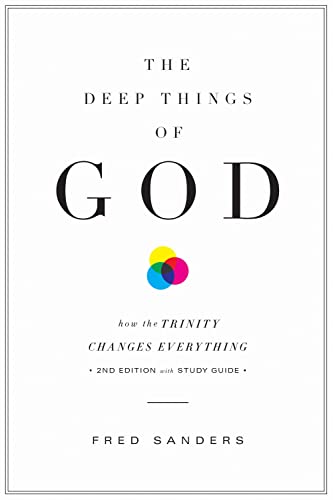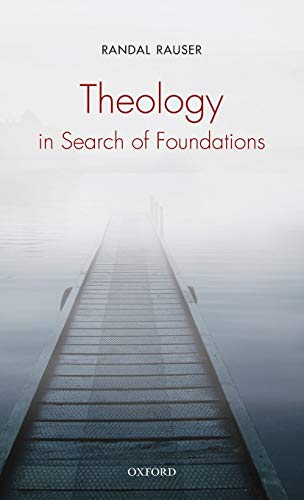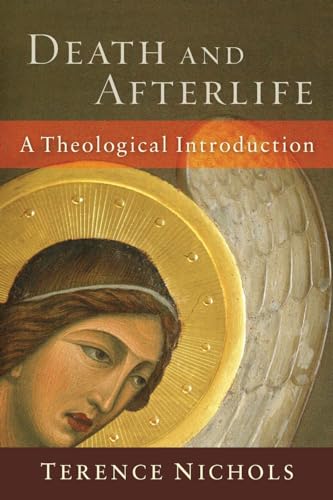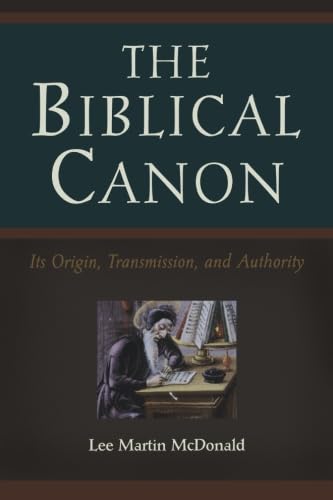Volume 35 - Issue 3
A World Servant in Christian Liberal Arts Education
By Philip Graham RykenAbstract
Most of our readers are theological students and pastors. Most, therefore, have pursued or are pursuing tertiary education, some of it in distinctively Christian institutions, some not. We thought it might be helpful to include the following address by Phil Ryken at his inauguration as the eighth president of Wheaton College on September 17, 2010.
Most of our readers are theological students and pastors. Most, therefore, have pursued or are pursuing tertiary education, some of it in distinctively Christian institutions, some not. We thought it might be helpful to include the following address by Phil Ryken at his inauguration as the eighth president of Wheaton College on September 17, 2010. (A video of the address is available at http://www.wheaton.edu/wetn/flash-Comm/100917RykenInaugAd.html.) A few of his comments presuppose “insider” knowledge; more important are the values and integration ably articulated. Ryken, a Council Member of The Gospel Coalition, was Senior Minister of Tenth Presbyterian Church in Philadelphia from 1995 to 2010.
I used to think that Thomas Wolfe was right, but now I’m not so sure. The American novelist is famous for one of his titles: You Can’t Go Home Again. Here is how Wolfe’s protagonist explains it, near the end of the story:
You can’t go back home to your family, back home to your childhood,. .. back home to a young man’s dreams of glory and of fame,. .. back home to the ivory tower,. .. back home to the old forms and systems of things which once seemed everlasting but which are changing all the time.
Wolfe’s point, of course, is that when you do go back home, it is never the “home” that you remember. Things have changed. You have changed. So when you walk again on the old familiar pathways, you find that the ground has shifted.
I take Wolfe’s point. Yet as I return to Wheaton after twenty-two years away, I find so many things unchanged. Not everything is in the same place, of course. The Stupe has moved from the Memorial Student Center to Beamer. The wardrobe to Narnia no longer guards the entrance to the English department, but has been carted off to the Wade Center with the rest of our C. S. Lewis relics. Even Perry Mastodon has shifted his creaky old bones to the new science center—his last migration, I suppose.
And yet all of those old friends are still here. What is more, the substantial things endure: the theology and piety of this Christ-centered community—with all the passion of our students, excellent teaching of our scholarly faculty, dedication of our staff, engagement of our alumni, and generosity of our supporters. You are those faithful friends: we thank God, and we thank you for being here today. As I return to campus I even find, to my amazement, that students still call the dining hall “SAGA”—a name that hasn’t been valid since the 1980s. I am home again.
But understand this: I did not answer God’s call to Wheaton because I wanted to come back home. Rather, I am here because I believe that God has appointed this College as a vital instrument in the worldwide work of his kingdom. This is no safe retreat, but a strategic base of operations for the global advance of the gospel of Jesus Christ through the discipleship of the Christian mind.
1. Community Covenant
So I speak with you today about Wheaton College as a world servant in Christian liberal arts education. For guidance, I go back to a critical moment in biblical history when God’s people were at home in a good land. As we turn to the end of the Book of Joshua, we find the eponymous general gathering God’s people for worship. After years of wilderness wandering, they have found a good home in a land flowing with milk and honey.
As they look around and see what God has done, they know that they are recipients of blessings they do not deserve. God says to them, “I gave you a land on which you had not labored and cities that you had not built, and you dwell in them. You eat the fruit of vineyards and olive orchards that you did not plant” (Josh 24:13, esv). Everything they have is a gift. It is all by grace, not by works.
These people are so greatly blessed that it might be tempting for them to become arrogant and complacent. So Joshua wisely confronts them with a choice. Will they serve the true and living God, or bow down to the man-made idols of false religion? Leading from the front, Joshua makes his own choice clear: “As for me and my house, we will serve the Lord” (Josh 24:15).
The children of Israel accept Joshua’s challenge and make their own choice for God. On that day, as a community of faith, they renew their sacred covenant. “And Joshua wrote these words in the Book of the Law of God. And he took a large stone and set it up” (Josh 24:26), as a witness to that covenant.
As I read this story, I see so many parallels with our situation at Wheaton today. We too are in a good place—a campus flowing with milk and honey. We are the recipients of undeserved blessings: buildings that others built, endowments that others raised, academic programs that others launched.
Like the children of Israel, we are members of a covenant community—every student, every staff member, every professor, and every board member. In our Community Covenant we each vow to fulfill our kingdom calling by loving God with all our minds and by loving one another for Jesus’ sake. This is our promise before God.
Today we renew that covenant. As we inaugurate a new presidency, it would be tempting for us to rest upon our academic standing, our history of doctrinal orthodoxy, or our position of influence within the evangelical church. Yet the choice comes to us again, as it comes to every generation: Will we serve the Lord or follow other gods? Will we walk in the footsteps of a Savior who gave his life and his blood for the poor, the lost, and the blind, or will we be satisfied with personal comfort, academic achievement, and material prosperity?
What I say today—not just for me, but for all of us—is what Joshua said: “As for me and this house, we will serve the Lord!” Then we ratify this choice by renewing our collegial calling to be a world servant in Christian liberal arts education.
2. Faith and Learning
Now, when I say “Christian,” I mean that in the full, biblical sense of the word (see Acts 11:26). We follow Christ. We do this because we believe that he is God incarnate, the only divine Son of God, the Creator of everything there is, from the light of the first star to the man and the woman he made in his image. Jesus Christ is the source and the sustainer: “All things were created through him and for him. And he is before all things, and in him all things hold together” (Col 1:16–17).
Christ is not only Creator, but also Redeemer—the Savior of the world. By his sufferings and death on the cross he has made full and perfect atonement for sin. What is more, by his resurrection from the dead he has brought life out of the grave. Now from his position of absolute authority at the right hand of God, Jesus offers forgiveness and eternal life to anyone and everyone who believes in him.
This is the Savior we choose to follow. To be specific, we follow him with our minds. Dr. J. Richard Chase, our sixth president and only lately tenured in glory, said it like this: “Whether you are five or ninety-five, following Christ is a thinking person’s life.”
To follow Christ with our minds is to pursue what we so often describe on this campus as the integration of faith and learning—what I somewhat prefer to call “the reintegration of learning with faith.” I say this in part because learning and faith are not equal entities. Faith is more fundamental. As philosopher Arthur Holmes has often reminded us on this campus, “In order to integrate, you have to have something to integrate with,” and for us that something is biblical Christianity.
But I also speak of reintegration because faith and learning were never intended to be separate. This is true biblically. It was only when Adam and Eve pursued knowledge apart from trusting God that sin came into the world and learning was sundered from faith. It is also true historically. In the best and oldest traditions of American higher education, faith and learning belong together—not merely juxtaposed, but integrated.
That is what we still do at Wheaton. We take whatever knowledge we gain through the arts and sciences and test it according to the absolute truth of God’s Word. Whatever is true to the world as God made it, and whatever is true to who we are as people made in his image, we view it all from the perspective of the Lordship of Jesus Christ, believing that all truth is relative to his person and work.
3. The Liberating Arts
As we reintegrate learning with faith, we provide a particular kind of Christian education: liberal arts. Here I use the word “liberal” in its oldest and truest sense as what brings freedom. The liberal arts are the liberating arts: they give us the freedom to become everything God has gifted us to become.
Liberal arts education grants this freedom by giving broad exposure to the arts and sciences, building critical skills for thinking, writing, listening, speaking, and analytical decision-making. Through art, music, history, literature, philosophy, mathematics, science, social science, and theology, we develop the whole person. We do this not only in our undergraduate program, but also in our graduate school by grounding professional training in the broader context of the liberal arts.
My favorite definition of Christian liberal arts education is the one I learned at my father’s knee. It comes from John Milton, who said that a “complete and generous education” fits a person “to perform justly, skillfully, and magnanimously all the offices, both private and public, of peace and war.” As Milton understood, a truly liberal education prepares a person for anything and everything in life. It makes us better workers and colleagues, better husbands and wives, better fathers and mothers, better leaders and servants, better citizens of the kingdom of God.
I choose the word “citizen” deliberately. According to the classical model of the liberal arts—going back to Cicero and Isocrates—the goal of education was effective citizenship in a participatory democracy. Our vision includes that kind of citizenship, but it is more expansive. To be “for Christ” is to be a citizen of “his Kingdom.” So what is distinctive about a Christian liberal arts education is that it prepares students for active service in the kingdom of God—not simply in church-based ministry, although that is part of it, but in every vocation that glorifies God.
4. Global Engagement
Today the kingdom of God extends around the globe. It was never God’s intention for his people to be confined to only one place, but for the good news of his gospel to transform people from every tribe, every tongue, and every nation. That promise has found its fulfillment in Jesus Christ, whose spiritual kingdom stretches from shore to shore and whose wide dominion spreads from the rising to the setting of the sun.
What is Wheaton’s place in the kingdom work of Jesus Christ? Through excellence in Christian liberal arts education, we have a place of worldwide service in a century that will offer us unprecedented opportunities for global engagement.
This is fully in keeping with our historic mission. When Jonathan Blanchard first came to provide visionary leadership for this college, he said that he came to Wheaton because “it is near Chicago, the gate city between the Atlantic and the Pacific, between Western Europe and Eastern Asia.” His son Charles—our second president—believed, “The College can have no joy unless those whom it instructs become powers in the world, working for righteousness.”
We have been faithful to that founding vision in many ways, through the missionary forces we continue to send all over the world and through the ordinary graduates who do extraordinary work in many ordinary callings. Wherever you go, you find Wheaton alumni serving Christ and his Kingdom: they generate capital in London; they do relief work in Sudan; they provide educational leadership for Indonesia. In many cases they have been directly prepared for this work through graduate and undergraduate programs that have given them cross-cultural experience.
Yet we do not have a central office that coordinates and facilitates global and experiential learning. We have not articulated a philosophy of liberal education that incorporates global engagement as an essential part of a Wheaton education, so our students learn how to live, work, worship, and serve in a globalized society—not just preparing students for global engagement, but preparing them through global engagement. We have not developed long-term strategic alliances with colleges and universities overseas that enable us to learn and to teach collaboratively, strengthening both institutions through mutual influence. We have not fully learned how to take everything that is exceptional about Wheaton as an institution of higher education and then multiply its global impact.
I hardly need to tell you that the world’s need has never been greater: billions are hungry and hopeless; they have never heard the good news of Jesus Christ. Mercy and justice require global leaders—world servants—who have the understanding, the skill, and the compassion that Christian liberal arts education can best provide.
As great as the needs are, the opportunities have never been greater. The current issue of Foreign Policy reports that out of all the cities in the world, Chicago is number six in its global influence on culture, commerce, and creative innovation—ahead of cities like Singapore, Seoul, and Shanghai. Thus the City of Broad Shoulders remains what Jonathan Blanchard said it was: a gateway to the world.
As we enter the century of the global city, as some are calling it, imagine our students learning on a Wheaton campus in the urban, cross-cultural context of Chicago. Imagine the leaders of African colleges revitalizing our evangelical convictions out of the strength of their historic Christian orthodoxy. Imagine the professors at the rising Christian universities of China learning how to integrate learning with faith through collaboration with faculty from Wheaton College. Imagine more students from South and Central America enriching our campus community by sharing their experience of suffering and joy before returning home with the treasures of the liberal arts in the Christian tradition. Imagine these things and you begin to imagine a mission as big and as beautiful as the kingdom of God itself.
5. A Community of Grace
I want to close by reminding us that as we renew our calling and our covenant, we should not imagine that we can ever do anything good for God apart from his grace. If we look at the history of Wheaton and ask why the College has remained essentially faithful to its original mission, the answer is not because of who we are, but because of who God is. We are a community of his grace.
We are reminded of our ongoing need for that grace by the strange and agonizing dilemma at the end of Joshua 24. We might expect the story to end with verses 16 to 18, where God’s people make their commitment not to forsake the Lord, but to serve him to the very end.
But that is not how the story ends. When the people make their choice, Joshua informs them that they will fail. “You are not able to serve the Lord,” he says, “for he is a holy God. He is a jealous God; he will not forgive your transgressions or your sins” (Josh 24:19). So God’s people are caught in a dilemma: as a matter of conviction, they must promise to serve the Lord; yet because of their sin, they will fail to keep that covenant.
Wheaton College has always faced the same dilemma. As a matter of conviction, we promise to serve Christ and his Kingdom. We renew that covenant today. Yet we renew it knowing how often we have failed and that we are bound to fail again. As a College we have never fully lived up to our own ideals, let alone the perfect standard of a holy God. Nor have we ever completely fulfilled our calling.
Nevertheless, we believe that God has bridged the chasm between his holiness and our unrighteousness by loving us and accepting us through Jesus Christ. As the sinless Son of the Father, Jesus perfectly kept the covenant that we have broken so that through faith in him God forgives our sins and accepts us. His grace now gives us the freedom, by the power of his Spirit and in spite of our many failings, to fulfill our calling as a world servant of the world’s Savior.
Frederick Buechner has written, “The place God calls you to is the place where your deep gladness and the world’s deep hunger meet.” What is the place where your gladness and the world’s hunger meet? For me that place is back home at Wheaton College, where we find our deepest joy in serving the Christ who alone can satisfy the hungry soul.
Philip Graham Ryken
Other Articles in this Issue
The Dazzling Darkness of God’s Triune Love: Introducing Evangelicals to the Theology of Hans Urs von Balthasar
by Stephen M. GarrettJürgen Moltmann observes that Christian theology and the Church face “a double crisis: the crisis of relevance and the crisis of identity...
Plots, Themes, and Responsibilities: The Search for a Center of Biblical Theology Reexamined
by Daniel J. BrendselIn the prolegomena to his “approach to biblical theology,” Charles H...
Since the mid-twentieth century biblical scholars have increasingly accepted that the texts of the Bible must be interpreted in terms of their literary genres...
The present age tends to regard polemics, theological controversies, and all-round doctrinal fisticuffs as, at best, a necessary evil, at worst, one of the most revolting aspects of Christianity...
Not many voices are raised these days in support of individualism...


